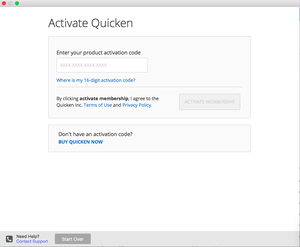
Premium appliance brands and expert service available inside select Best Buy stores. Camera Experience Shop. Shop a wider selection, talk to a camera expert and try before you buy at select Best Buy stores.
With expected any day now (predictions were Thursday, July 14), it's time to get serious about the fact that the new operating system version is not expected to support older programs compiled for PowerPC processors. Root of the Problem When Apple switched from PowerPC (PPC) processors to Intel processors in 2006, then Intel version of OS X included a utility called Rosetta, which translates the PPC code into Intel-friendly code, enabling users of Intel Macs to run older applications. Reports from developers with pre-release copies of Lion are unanimous that Rosetta is no longer included. The result is that those older applications won't run after users upgrade to the new OS. In, I showed how to check whether you're running any applications that are dependent on Rosetta.
If only one user is registered in Chrome, look in the Default/Extensions subdirectory. Otherwise, look in the /Extensions directory. If that didn't help, you can always do a custom search. Where are the files for the chrome extension in mac. To back up your profile(s), copy the Default profile folder and any numbered Profile folders in the UserData folder on Windows, the Chrome folder on Mac OS X El Capitan, or the google-chrome folder in Linux to an external hard drive or a cloud service. Be it Windows or Mac, computer users have been preferring Chrome over its peers for more than a decade due to its simplicity in usage, stability, speed and overall user experience. The extensions available in Chrome also augment its worth for users. Sometimes, when you install an application on Windows or Mac, it also installs a Chrome extension. The next time you open Chrome: To grant permissions and use the extension, click Enable. To delete the extension, click Remove. I would like to know where the Extensions Files (the installation files) are stored. Basicly in Linux and Windows. What i want to do is to synchronize (dropbox) the Extensions i use btw my computers. So i dont need to download everywhere, when i install a extension in PC X or Y...
In my case, there were several. An older version of is easily updated to an Intel-friendly version, but my older version of Intuit's Quicken financial management software proved to be more of an issue. The Problem with Quicken I've been running a copy of Quicken 2005 that was originally bundled with a G5 iMac; I've transferred it, along with my financial data, from Mac to Mac ever since. I haven't bothered upgrading it, since it ran fine on my aluminum MacBook running today's, and I haven't needed more than a few of even this older version's features.

Intuit has had an on-again/off-again relationship with Mac users, with long periods where it hasn't bothered to release Mac versions of its programs, Quicken, QuickBooks, TurboTax, and more. It has a current Mac version of Quicken, Quicken Essentials 2010, but that has been criticized for being less powerful than its current Windows version. In fact, Intuit recently Mac users: 'This option [using Quicken Essentials] is ideal if you do not track investment transactions and history, use online bill pay or rely on specific reports that might not be present in Quicken Essentials for Mac.' And while there's a US version of Quicken Essentials, there's no Canadian version - meaning no support for Canadian financial institutions, Canadian tax codes, etc., even though Intuit Canada has released a localized version of its Windows Quicken. Intuit Canada's advice for Mac users: Install Windows on your Mac (perhaps using virtualization software like VMware Fusion) to run the Windows version of Quicken or sign on with Intuit's online service. Sorry, I'm not prepared to do either. If I wanted to run the Windows version of Quicken, I would be doing that on a Windows system.